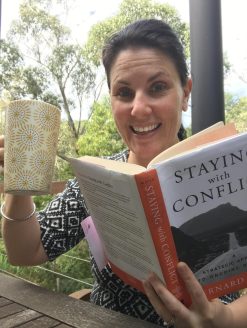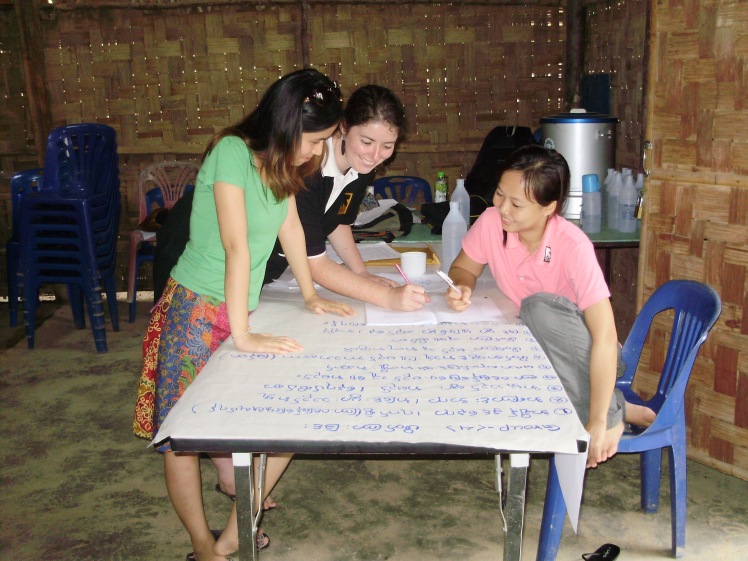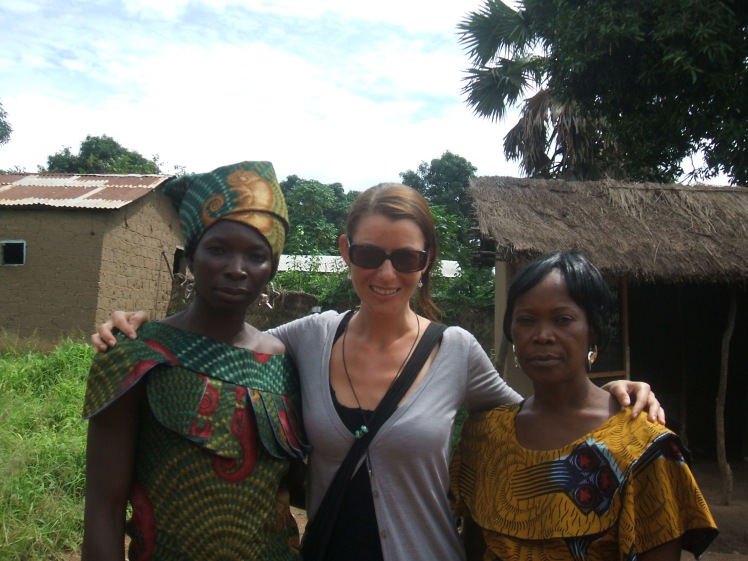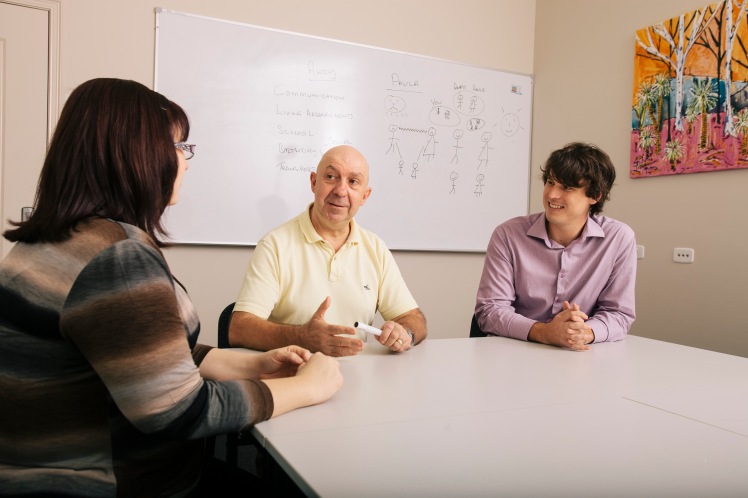Benjamin Freedman
Current student, Master of Conflict Management & Resolution (due to finish in November 2017)
What sparked your interest in conflict resolution?
In 2014 I began working in patient safety- a field of healthcare which is all about reliability and performance in hospital settings. What I quickly discovered was that healthcare teams who were ‘safe’ all had this culture of constructive conflict engagement, negotiation and shared problem solving. Conversely, teams who had a lot of clinical incidents were invariably characterised by poor cohesion, conflict, and a lack of communication. The more critical incidents I explored, the more this association became apparent. I then realised that there was not much research in this space (the relationship between conflict and quality of care) but a pretty strong appetite emerging among hospital leaders to develop this thinking, so one day in January 2015, on my lunchbreak, I visited Claire Holland at JCU, and the rest is history!
I have a background in social work but haven’t done that for some time (I graduated in Tasmania and spent twelve years working in community mental health settings in Adelaide, UK and Queensland). I currently work in public sector health management, but within that I’m a bit of a journeyman- I’ll turn my mind to whatever role, task or opportunity arises.
Returning to post-graduate study has been one of the greatest decisions I have ever made. The reflection I have undertaken through CMR study has influenced pretty much every paradigm and aspect of my world view in and out of work.
Adam Tilbrooke
Current student, Master of Conflict Management & Resolution
How did you become involved in the Conflict Resolvers Network (CRN)?
As a current student of James Cook University (JCU) working towards my Masters of Conflict Management & Resolution I became aware of the (CRN) through my lecturers.
What sparked your interest in conflict resolution?
The spark came from my father who had previously completed a Masters in Conflict Management &Resolution at JCU. Discussions with him regarding his role as a Family Dispute Resolution Practitioner for Relationships Australia allowed me to reflect on my future career opportunities. The spark turned into a flame and I was in Townsville enrolled in university meeting new people from around the world with new doors opening.
What areas of conflict resolution are you most passionate about?
At this stage of my study I would say everything. I’m unwilling to state a particular area at this point as each JCU subject identifies new opportunities.
Tell us a little bit about your professional background
Well that’s an interesting story. I left school and completed an apprenticeship in commercial cookery as a Chef. I then traveled around Europe and America managing chalets and hotels and even worked as a ski guide! When I returned to Australia, I worked for Westpac and Caltex before moving into the disability employment sector four years ago, managing offices that assist individuals to find sustainable employment.
I am currently working at JCU on The Interfaith Project coordinating dialogue on campus “World Café style” increasing religious literacy, creating campus connectivity among students.
How has your interest in conflict resolution impacted your life?
Conflict impacts everyone, for me it was my natural concern to see conflict resolved, understanding that it can be a positive experience. Everyone has a story, especially opinions but we often need to hear the other side or look what’s happening beneath the iceberg. Assisting people to resolve issues can be quite enlightening not just to watch but also to take part in the process.
What would you like to get out of the CRN?
The advantage of networking with the opportunities of increased knowledge, work experience, travel, employment ……
Anything else you’d like to share with your fellow CRN blog followers?
I’m looking forward to changing this profile very soon in future as my JCU study develops and new employment opportunities arise..
___________________________________________
Amaya Elizabeth Mo
Alumnus, Master of Conflict Management & Resolution and Master of Business Administration
How did you become involved in the Conflict Resolvers Network?
I completed my MCMR and MBA through JCU in 2016 and was introduced to the network by the lovely Claire Holland, one of the lecturers.
What sparked your interest in conflict resolution?
There really wasn’t one specific moment, instead a series of events led me to the point where I started my Masters and from there my interest in conflict resolution grew into a passion.
For those who are curious, events that influenced my direction included; challenging interpersonal conflicts in the workplace as I took on more senior roles, working with organisations dealing with ongoing conflict during periods of organisational change, time working with a brilliant executive coach who changed the way I think about conflict forever and life changing circumstances (read: love) that placed me in a position where I was able to take on postgraduate studies in the gorgeous tropics!
What areas of conflict resolution are you most passionate about?
Deep-rooted, intractable conflicts really interest me, I think it’s because I’ve always been a problem solver and you can’t be when working with these types of conflicts so it’s a whole new world! I enjoy supporting people to engage with conflict and find ways to stay with conflict while moving forward, particularly in workplace and community settings.
I have a keen interest in restorative justice practices (conferencing), but limited experience, and have really enjoyed applying newly acquired coaching, mediation, negotiation and facilitation skills developed through the program.
Tell us a little bit about your professional background
For most of my career I have worked in consulting roles both working with or within state and federal governments, private and not-for-profit sectors predominately focussing on designing and implementing strategies and initiatives that support effective, people-centred, service delivery models across a range of industries.
I am a Melbournite born and bred however in late 2013 an exciting job opportunity came up for my husband (who had recently migrated to Australia from Norway) in Townsville. The opportunity was too good for him to turn down so we relocated – for me this meant leaving my full-time job, starting a small consultancy Zing & Co (www.zingandco.com.au) and commencing my Masters! Whilst undertaking my Masters we relocated to Darwin and welcomed a baby boy into the world. After completing my Masters I was able to extend my business offerings to include my newly acquired conflict practitioner skills which has been very exciting and rewarding. We have now relocated back to Melbourne and I look forward to continuing my work as a conflict practitioner down here.
What would you like to get out of the CRN?
I hope the CRN will provide a useful platform to pick up interesting information on events, opportunities and the industry more generally. I also hope to be able to share anything exciting that I might come across or do in the future.
I love connecting with other people who share a passion for conflict management and resolution so please feel free to contact me at amaya@zingandco.com.au !
_______________________________________________________________________________________________
Claire Holland
Lecturer and PhD Student, Conflict Management and Resolution
JCU would like to welcome Claire to the teaching staff in the Conflict Management and Resolution Program. Claire studied a Master of Mediation and Conflict Resolution at the University of Queensland and has been working in international development in Thailand and the Philippines for the past few years.
Claire spent a year working in refugee camps on the Thai-Burma border as a Mediation Specialist with International Rescue Committee (IRC). Her role involved training IRC legal assistance centre staff, paralegals and camp community leaders to improve dispute resolution procedures, policing and detention practices in the refugee camps. She worked to build capacity and assist camp leadership to administer justice in a way that is consistent with fundamental human rights principles and Thai law.
A large part of her time was spent conducting focus group discussion with different groups of the refugee community in order to design a dispute resolution process that would work in the cultural and ‘legal’ context of the camp.
Claire has most recently worked as a Capacity Development Officer in Dumaguete, the Philippines. She was embedded with a local NGO and worked to strengthen the Institution Building team, develop gender policy for the organisation and to engage remote and disadvantaged communities with local government units in order to access services and funds for community development. Her role was to help develop communication strategies to engage communities with their local government representatives and up-skill her counterparts to understand basic negotiation techniques, gender considerations, power imbalances and multiparty facilitation techniques.
Claire will be teaching the subjects Conflict Process and Research and Writing in Conflict Resolution and Management in the Master program next year.
—————————————————————–
Judith Herrmann
Director – JCU Conflict Management and Resolution & PhD student
Judith is writing her PhD thesis in the area of transitional justice. She is analysing a range of transitional justice processes from a gender perspective. More specifically, she is looking at how female victims of sexual violence in armed conflict have experienced justice processes dealing with the crimes committed against them. The objective is to find out what the most pressing needs of victims of sexual violence are, how far they have been accommodated in contemporary justice processes, and how they could be better considered.
Judith is planning to compare proceedings set up by the international community with local, usually more customary, justice processes to assist in developing recommendations for the field. She wants to focus her research on violent conflict in Africa and is planning to conduct some in depth research in Rwanda. She wants to interview local experts and victims who participated either in the international proceedings of the International Criminal Tribunal for Rwanda (ICTR) or in the local justice processes called “gacaca”. Both processes were set up to deal with atrocities committed during the Rwandan genocide in 1994, during which around 500,000 women were raped. Both the international and the local justice processes have often been critiqued for not adequately responding to victim’s needs. Judith hopes to return to the field to conduct further research soon.
—————————————————————–
Richard Dening
Alumnus – Master of Conflict Management and Resolution
Richard has been a student of the Masters program since 2011. He also has qualifications in Law and in Peace and Conflict Studies and is an accredited mediator. His interest areas are peacebuilding, non-violence, criminal, restorative and transitional justice.
Richard has been working for Queensland Health in Brisbane since 2009 assisting in the management of mentally ill people who have been charged with offences. He has recently relocated from Brisbane to Townsville for an opportunity at the North Queensland Dispute Resolution Centre. Richard has taken on the Justice Mediation Officer’s position and will be managing and facilitating restorative justice processes for the Townsville region. The program brings victims and perpetrators of crime and their support networks together. It empowers victims to express the true extent of the effect of the wrong in their lives and gives perpetrators an opportunity to apologise, take responsibility for their actions and find a way to make amends. Richard is passionate about using wrongs committed to build new understanding between parties and about ensuring that people who have experienced crime can process that within their communities.
Richard is also the President of the Alternatives to Violence Project Queensland (AVPQ). As well as his responsibilities on the management committee Richard has been facilitating conflict transformation workshops for groups of inmates at the Southern Queensland Correctional Centre, with refugee groups in Logan and in Darwin and also with the general community. Workshops use a broad definition of violence and focus on facilitating groups to share experiences, build understanding and learn new skills for approaching conflict in their lives. The project is run on a train-the-trainer basis with all participants having the opportunity to work toward becoming facilitators. Richard is keen to gauge interest in workshops being run in the Townsville region. To register your interest please contact Richard on RichardDening@icloud.com or for more information please visit www.avpq.org.au or www.facebook.com/avpqinc
—————————————————————–
Steve Savage
Alumnus, Master of Conflict Management and Resolution
Steve studied family law as a mature-age student, and became interested in the effects of family separation and divorce. After working with homeless youth and custody programs, he enrolled in a Master of Conflict Management and Resolution in 2012.
JCU organised a work placement for Steve at the Family Relationship Centre (FRC). He was subsequently offered a full-time position and now works with the Townsville FCR and other agencies and referral services.
Steve was impressed with his studies in Family Mediation, taught by Jon Graham, who is an acknowledged leader in family dispute resolution and credits his experience in this subject as the prime motivation to become an accredited Family Dispute Resolution Practitioner (FDRP).
“When parents come together and agree on a plan for their children, you know you’re doing your job. It’s challenging, there are many different emotions, but ultimately you are making a difference to a child’s life.”
Key elements of the Family Mediation course include the use of the pre mediation processes to assess suitability, how to undertake a risk assessment and develop safety plans, how to begin resolution through educative processes and preliminary activities as well as strengthening knowledge and skills around Family Violence.






